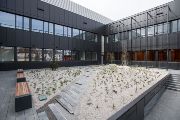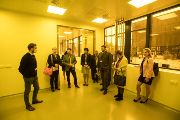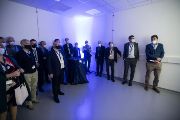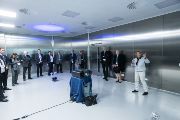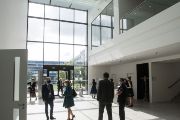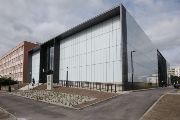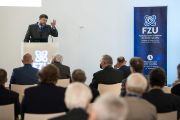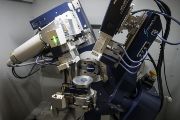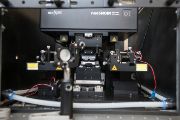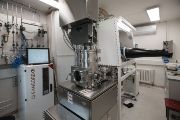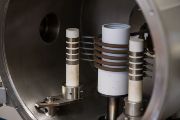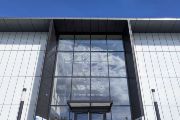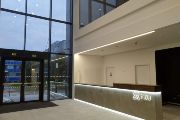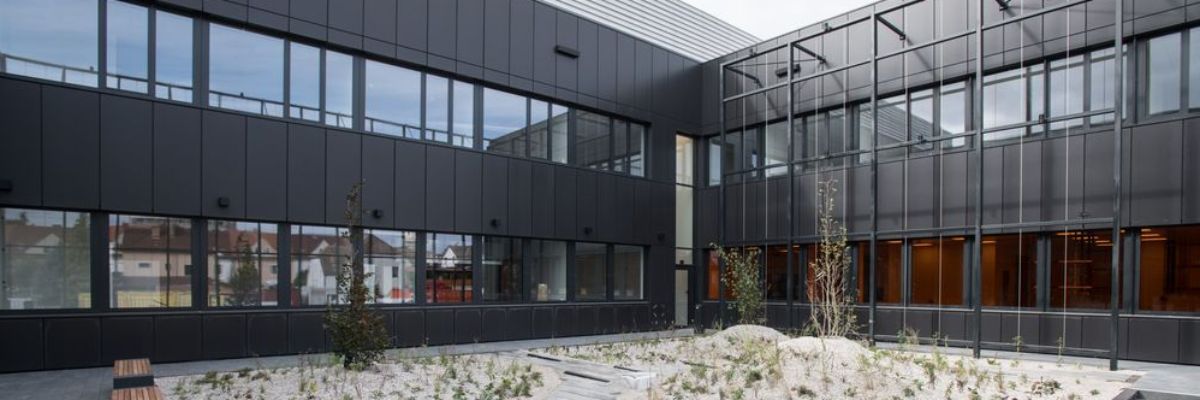
Physics for the 21st century. Opening of a new centre for research excellence
29. 09. 2021
Lasers, solar cells, and progress in medicine – for all those, the mankind owe to the science concerned with solid substances. Their research, specifically the solid-state physics, will be the focus of the new SOLID 21 Centre of Excellence. A multi-purpose pavilion with clean rooms for advanced technologies and biophysics laboratories will allow scientists to use the extremely sensitive instruments needed for their research.
Solid-state physics is changing people's lives in a revolutionary way and is one of the fastest growing areas of physics ever. Moreover, it transfers new knowledge into practice in a short time. Starting in November 2021, 55 unique laboratories will be used for research on nanoelectronics, photonics, magnetism, functional and bioactive materials, and plasma technologies.
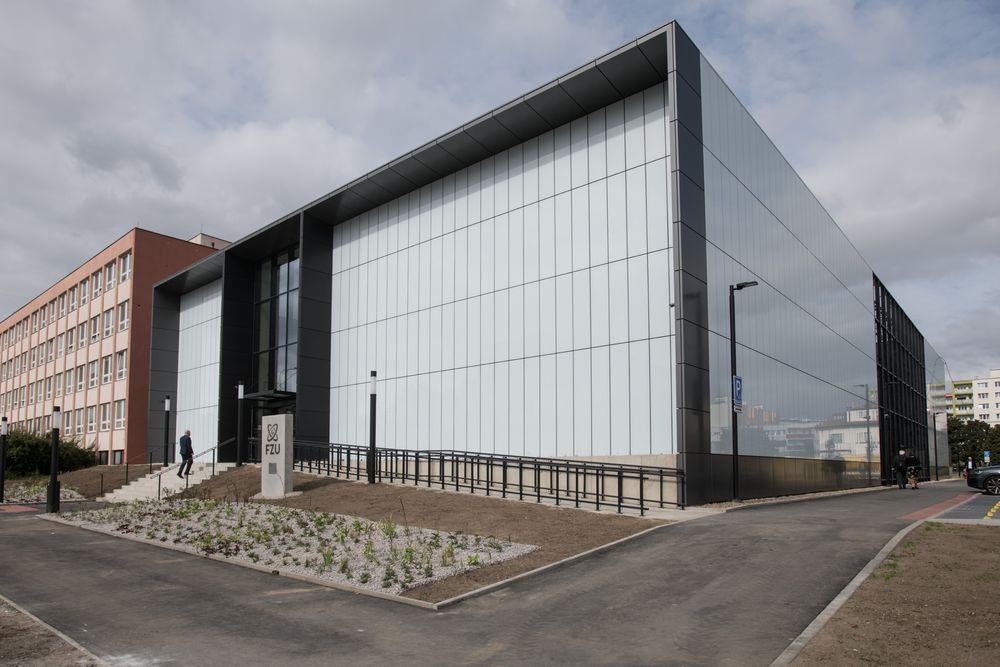
"Solid-state physics is having a profound impact on the present, our research has helped to bring the photovoltaic panel manufacturing back to Europe, but we are also creating the future. For example, spintronics has the potential to significantly transform data storage," says Michael Prouza, Director of the Institute of Physics of the CAS. "We routinely use lasers, photovoltaic cells, LED lights or nanoparticles in medicine, and it is important to remember that these all are applied results of the solid-state research we will be doing in the new building."
Star Wars Physics
Basic research falling specifically within the field of solid-state physics is one of the key activities of the Institute of Physics of the CAS and has a long tradition. The rise of this field has been analogously compared to the plot of the Star Wars sci-fi saga, as it continues to surprise with new discoveries. An international team of more than 200 scientists will be involved in solid-state physics research and its translation into applications in the new pavilion.
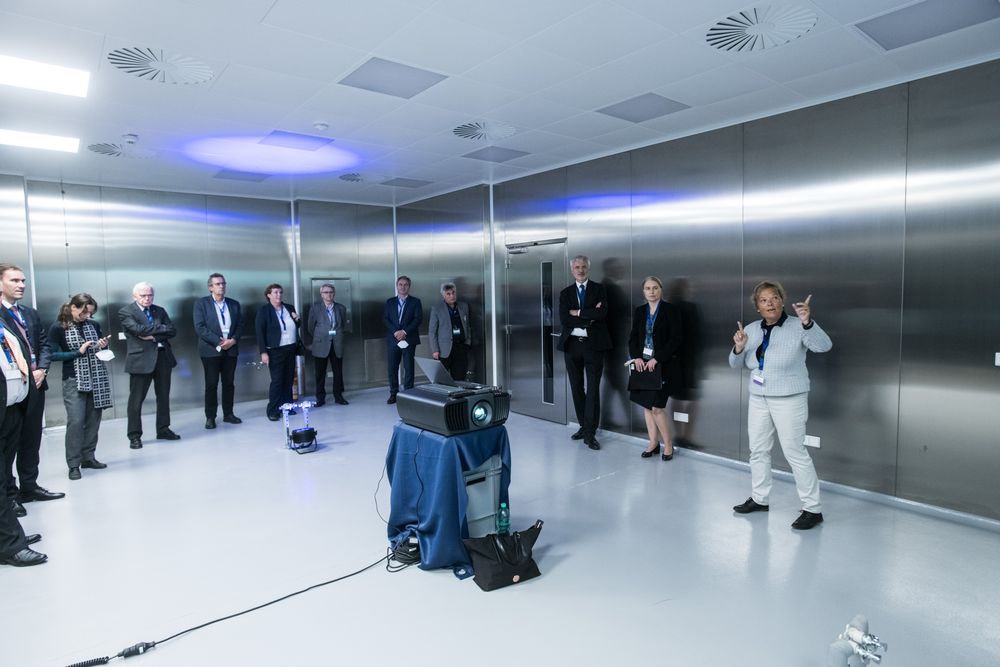
"I am extremely pleased that scientists will be given such unique facilities for their research in the new pavilion. Science - especially at this time - proves that it is needed and helps us in our daily lives, even if we sometimes do not fully realize it," says Eva Zažímalová, President of the Academy of Sciences.
The architectural design of the building by Bogle Architects managed to combine the demanding technological needs of the research centre with the requirement for the necessary communication of the individual research teams. The resulting project is close in style to the buildings of university campuses surrounded by greenery, and it makes maximal use of natural daylight in the multifunctional hall and the scientists' offices. The award-winning ELI Beamlines laser centre building in Dolní Břežany also emerged from the cooperation between the Institute of Physics of the CAS and the studio in the past.
Text: Eliška Zvolánková, Division of External Relations, CAS Centre of Administration and Operations
Photos: Institute of Physics of the Czech Academy of Sciences
Read also
- Moss as a predator? Photogenic Science reveals the beauty and humor in research
- How does the Academy Council plan to strengthen the Academy’s role? Part 2
- How does the Academy Council plan to strengthen the Academy’s role? Part 1
- Ombudsperson Dana Plavcová: We all play a role in creating a safe workplace
- ERC Consolidator Grant heads to the CAS for “wildlife on the move” project
- A little-known chapter of history: Czechoslovaks who fought in the Wehrmacht
- Twenty years of EURAXESS: Supporting researchers in motion
- Researching scent: Cleopatra’s legacy, Egyptian rituals, and ancient heritage
- The secret of termites: Long-lived social insects that live in advanced colonies
- Two ERC Synergy Grants awarded to the Czech Academy of Sciences
The Czech Academy of Sciences (the CAS)
The mission of the CAS
The primary mission of the CAS is to conduct research in a broad spectrum of natural, technical and social sciences as well as humanities. This research aims to advance progress of scientific knowledge at the international level, considering, however, the specific needs of the Czech society and the national culture.
President of the CAS
Prof. Eva Zažímalová has started her second term of office in May 2021. She is a respected scientist, and a Professor of Plant Anatomy and Physiology.
She is also a part of GCSA of the EU.
